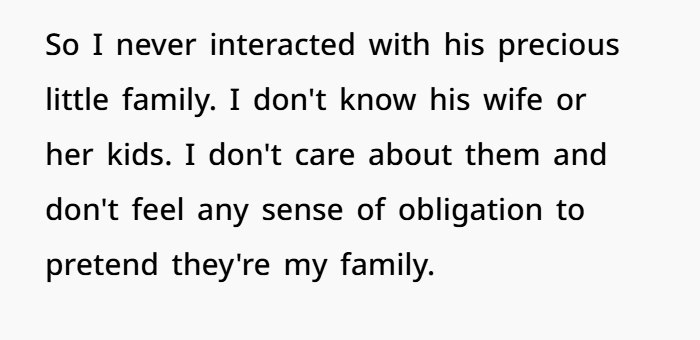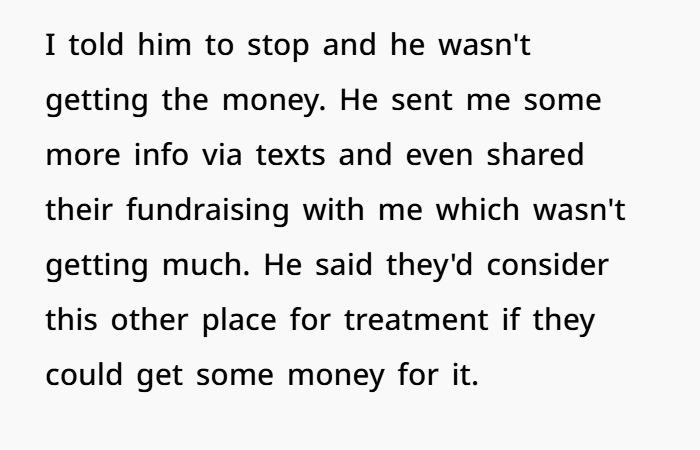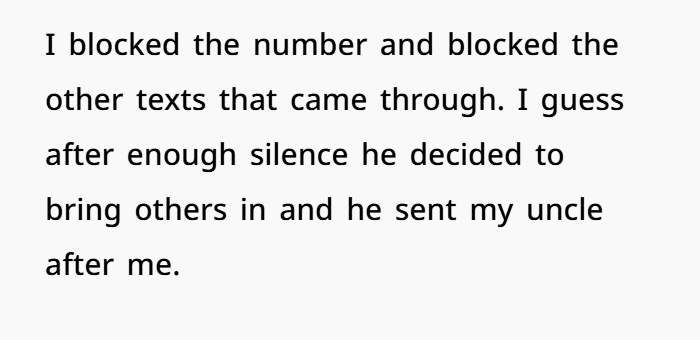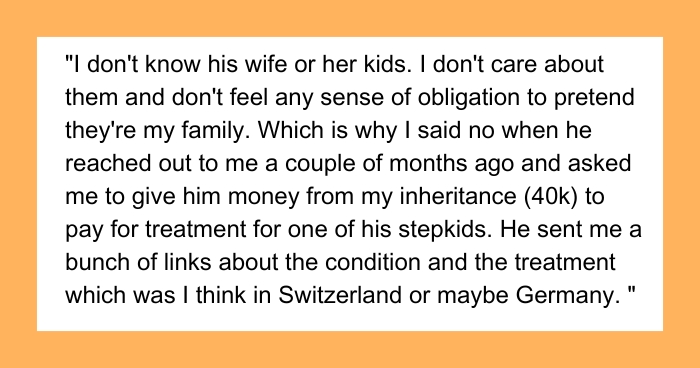Son refuses to give inheritance to father who kicked him out at 14yo and now wants $40K for stepkid’s treatment. AITA?
The OP (19M) received an inheritance from his paternal grandparents, safeguarded in a trust until he turned 19. His father, who had a strained relationship with OP, received only the minimum amount necessary to prevent him from contesting the will. Their relationship deteriorated further when OP’s father remarried and gave him an ultimatum: either fully embrace his new wife and stepchildren as his immediate family or leave. OP chose to live with his maternal grandparents instead.
Recently, OP’s father contacted him out of the blue, requesting $40K from the inheritance to fund a medical treatment in Europe for one of his stepchildren, whose condition has worsened. OP refused, leading to continued harassment via text, social media, and even involvement from his uncle, who urged OP to reconsider based on the moral argument that saving a child’s life should outweigh any personal grievances. Despite some reflection, OP remains steadfast in his decision, questioning whether he is in the wrong.
Read for more info Reddit














Here were the top rated comments from readers in response to the OP’s post:
Legally, OP is under no obligation to provide financial assistance. The inheritance is solely his, and since it was placed in a trust with clear stipulations, it is evident that his paternal grandparents did not intend for his father to have access to it. Moreover, given the father’s previous behavior—abandoning OP unless he accepted his new family dynamic—there is no expectation of familial duty from OP’s perspective.
From a moral standpoint, the dilemma is more nuanced. While helping a sick child is a compassionate act, OP’s father has done little to foster a relationship that would encourage such generosity. Studies in psychology suggest that parental rejection, especially when combined with favoritism toward new family members, can cause long-term emotional detachment (Journal of Family Psychology, Rohner, 2016). OP’s reaction aligns with self-preservation rather than malice. His father essentially cut him out of his life and is now appealing to him only when financial need arises.
Furthermore, the uncle’s suggestion of treating the money as a loan with legal backing might seem reasonable on paper, but the feasibility of enforcing repayment—especially given the father’s history—raises doubts. There’s also the issue of fairness: should OP be expected to fund someone he has no emotional or familial connection to, when the responsibility should lie with the child’s actual parents? If the father and stepmother have exhausted all other means of raising funds, OP’s refusal might sting, but it is ultimately a decision based on personal boundaries rather than pure malice.







OP is not obligated to use his inheritance to help a father who abandoned him emotionally and financially. His father created distance and is now expecting support, not as a parent seeking reconciliation but as someone desperate for money. While the situation is tragic for the child, OP is not responsible for fixing it. Choosing to help would be an act of kindness, not an obligation, and the pressure placed on OP is unfair given their family history.



